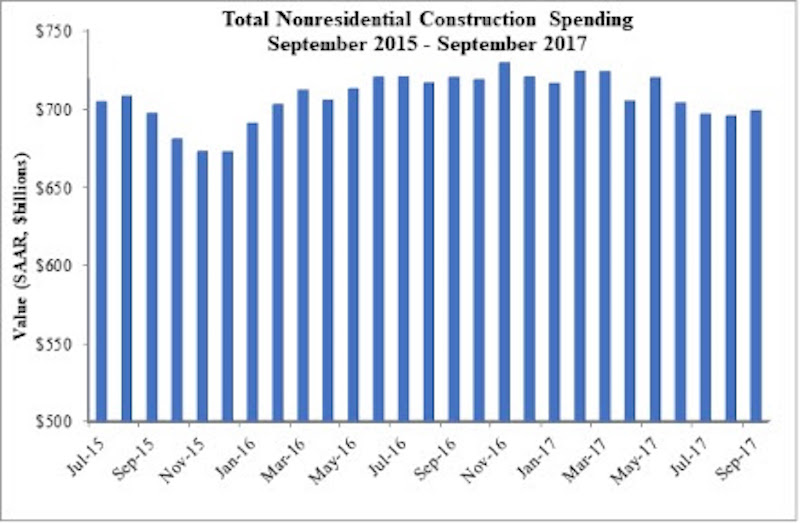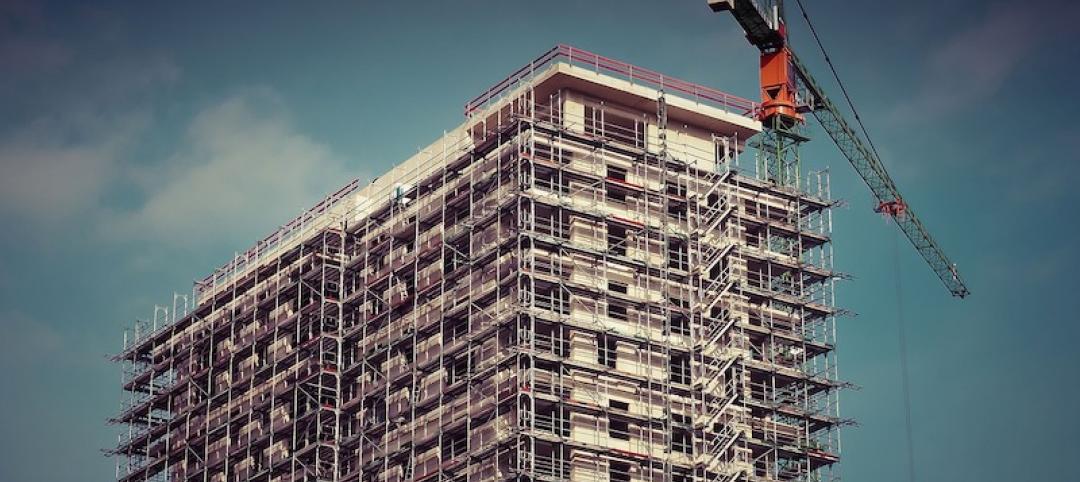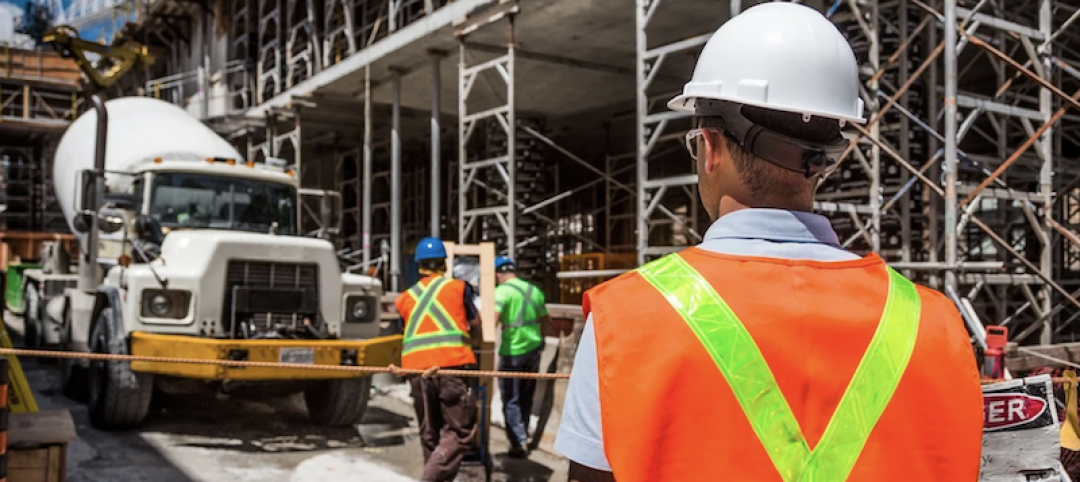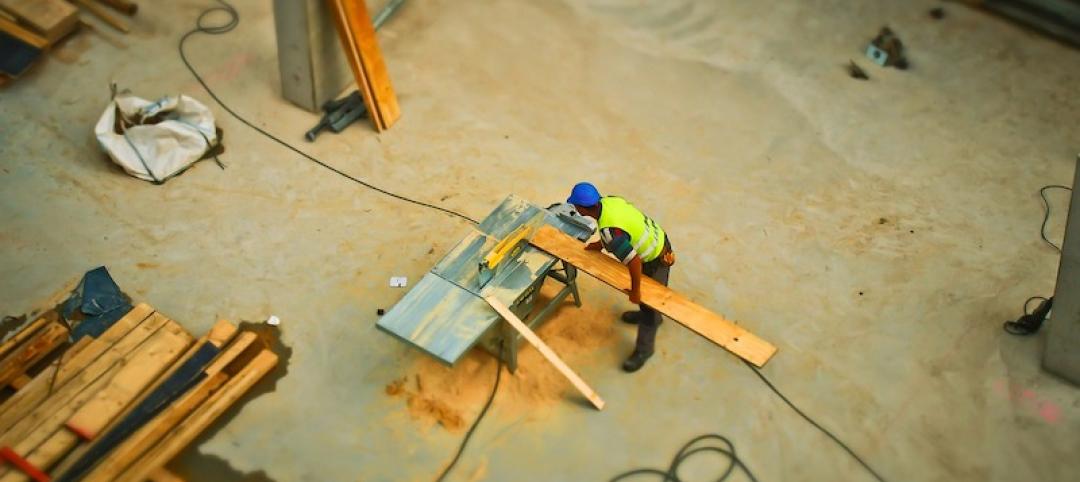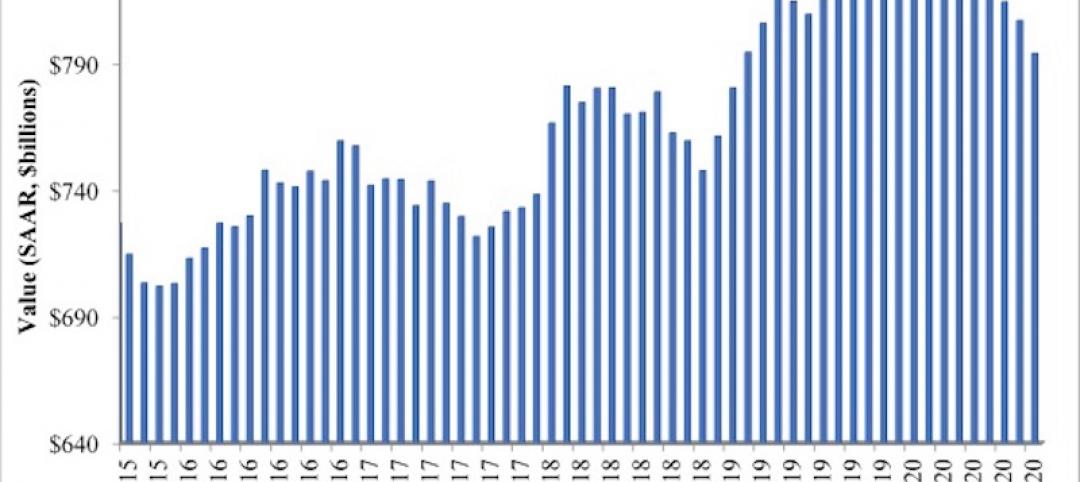Nonresidential construction spending rose 0.5% in September, totaling $698.1 billion on a seasonally adjusted basis, according to an Associated Builders and Contractors (ABC) analysis of data from the U.S. Census Bureau. However, nonresidential construction spending is down 2.9% on a year-over-year basis, with construction spending related to manufacturing down 20.3% since September 2016. August and July nonresidential spending totals were revised upwards by a collective $11 billion, however.
“There is a lot of positive news about the U.S. economy right now,” said ABC Chief Economist Anirban Basu. “The nation has added nearly 1.8 million net new jobs over the past year, the official unemployment rate stands at a 16-year low and asset prices have skyrocketed. Those factors have given American household wealth a boost. Despite all of that, nonresidential construction spending is down on a year-over-year basis by nearly 3%.
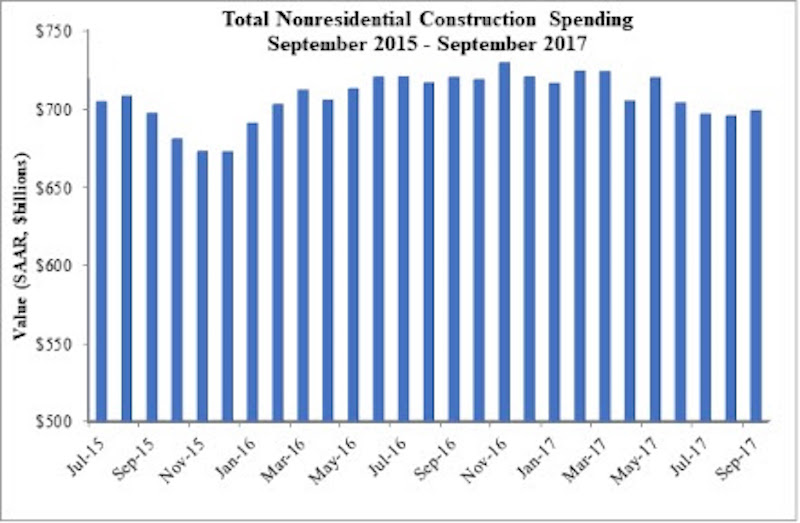
“Much of this is due to declining public spending in water supply and other public sector categories, but not all,” said Basu. “Key private segments like manufacturing and power have also experienced diminished construction activity. A likely partial explanation is the low commodity prices that characterized much of 2015 and 2016.
“At the same time, construction firms are boosting employment levels, with many firms reporting that the retirement of experienced workers is resulting in rapid hiring of other workers who are hopefully trainable, but who are not yet as productive on a one-for-one basis,” said Basu. “For many firms, this dynamic is likely squeezing profit margins. Many firms are also offering significant pay increases to their most talented workers to enhance retention and delay retirement.
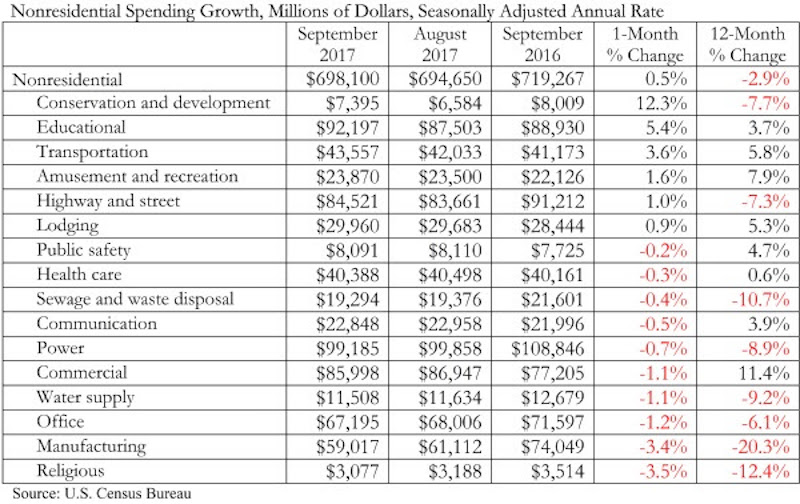
“All of this is consistent with the notion that proposed policy initiatives that would better support U.S. economic growth remain important even in the context of an improving economy,” said Basu. “Beyond the tax reform initiative currently in the spotlight, one hopes that an infrastructure-led stimulus package funded primarily by private investors receives more focus during the months to come.”
Related Stories
Market Data | Dec 2, 2020
Nonresidential construction spending remains flat in October
Residential construction expands as many commercial projects languish.
Market Data | Nov 30, 2020
New FEMA study projects implementing I-Codes could save $600 billion by 2060
International Code Council and FLASH celebrate the most comprehensive study conducted around hazard-resilient building codes to-date.
Market Data | Nov 23, 2020
Construction employment is down in three-fourths of states since February
This news comes even after 36 states added construction jobs in October.
Market Data | Nov 18, 2020
Architecture billings remained stalled in October
The pace of decline during October remained at about the same level as in September.
Market Data | Nov 17, 2020
Architects face data, culture gaps in fighting climate change
New study outlines how building product manufacturers can best support architects in climate action.
Market Data | Nov 10, 2020
Construction association ready to work with president-elect Biden to prepare significant new infrastructure and recovery measures
Incoming president and congress should focus on enacting measures to rebuild infrastructure and revive the economy.
Market Data | Nov 9, 2020
Construction sector adds 84,000 workers in October
A growing number of project cancellations risks undermining future industry job gains.
Market Data | Nov 4, 2020
Drop in nonresidential construction offsets most residential spending gains as growing number of contractors report cancelled projects
Association officials warn that demand for nonresidential construction will slide further without new federal relief measures.
Market Data | Nov 2, 2020
Nonresidential construction spending declines further in September
Among the sixteen nonresidential subcategories, thirteen were down on a monthly basis.
Market Data | Nov 2, 2020
A white paper assesses seniors’ access to livable communities
The Joint Center for Housing Studies and AARP’s Public Policy Institute connect livability with income, race, and housing costs.


